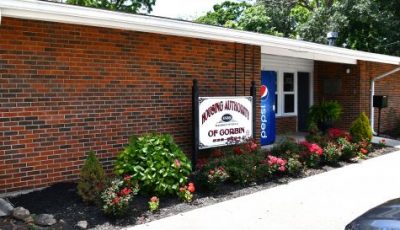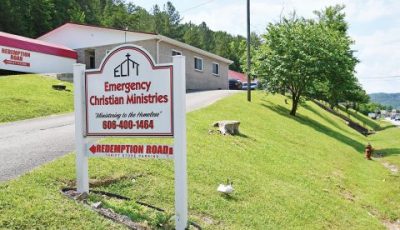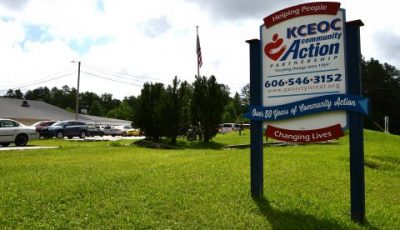Housing Insecurity: Community resources are available to help those in need
Over the course of the past seven weeks, this special series has looked at the issue of housing insecurity from many different angles. We have spoken to local faith leaders about their efforts to ensure that people don’t have to go without food, clothing or shelter. We have spoken to the director of Emergency Christian Ministries in Williamsburg about the difficulties of operating one of the area’s last remaining homeless shelters. We have spoken to case managers, executive directors of public housing, and we have even let local landlords offer their explanations for why rental rates are at the level they are currently.
Clearly, the issue of housing insecurity is multi-faceted. This has been well-documented, with multiple factors contributing to why a person might find themselves struggling with this problem at any given point in time. For some, the death of a family member could have been the triggering event. For others, it could be the loss of a job. For others still, a medical condition could have served as the catalyst.
Whatever the circumstances, stress and anxiety compound greatly when coupled with the fact that the person experiencing them has no reliable support system to lean on. That is why folks like Jennifer Beach with Cumberland Valley Behavioral Health say it is important that people understand that resources are available right here in the local area for anyone who might be in crisis, or in danger of falling into crisis.
“A lot of times people just don’t know that those resources are available,” Beach said. “They are dealing with everyday trauma, and problems are just piling on, which is making their depression worse. As a case manager, my job is to help those people connect with community resources. It could be anything, but it starts with taking care of those basic needs like shelter, water, food and electricity. Before you can focus on anything else, you have to meet those basic needs first.”
Beach said that she knows from her own personal experiences what it feels like to struggle through some hard times, having to take advantage of some government subsidized programs herself while she was raising children, working, and taking the necessary steps to obtain a college education.
“A person can eventually work their way up to changing their circumstances, but it takes resources, and it takes a helping hand,” Beach explained.
As for the role that mental health can play in these situations, Beach said, “Mental health looks different for everyone. For some people it is very obvious, but others may hide it well. Someone may be dealing with depression and anxiety, but they are still going about their lives every day. When you add on top of that things like how will I pay my bills, how will I pay for groceries, or the rent being late, it causes the depression and anxiety to get worse. At a certain point, people may want to throw their hands up and just say ‘that’s it, there’s nothing else that I can do.’ That is when it is important to realize that there are resources available.”
Beach stressed that seeking out help at community health center such as Cumberland River won’t necessarily just result in a person coming back on a regular basis to sit and talk with a therapist, although that is certainly an option for those individuals who need to do so.
“Once you make that first contact, there will be someone with you who can help you navigate these situations,” Beach said. “If you need more than just seeing a therapist, there is somebody here who can work with you, and help you to take advantage of the resources that are available in the community in order to hopefully make your life a little better.”
Above all, Beach simply wants to communicate that you do not have to feel alone, and there are a few ways that you can seek help if you or someone you know needs it. Calling the 988 crisis hotline is always an option, as well as contacting the offices of Cumberland River Behavioral Health directly at (606) 528-7010. Information is also available online at www.crbhky.org.
Beach said that self-sustainability is always the ultimate goal, assuming it is possible, and that once a person’s basic needs are met they can begin to further explore options for how best to move forward. One of the most important ways to establish patterns of success is through education, which Ken Corso and Tina Cook with Laurel County Adult Education were able to discuss.
“It’s pretty clear that there is a connection between earning power and education,” said Corso, who is an outreach specialist with Laurel Adult Ed. “Basically, getting your high school credential or your GED equals about a 27 percent increase in earning power compared to being a non-graduate.”
Corso went on to explain that an additional 18 percent can be added for those who go on to obtain a two-year degree, which his office can also help make a reality for those who are willing. In all, he said that approximately half of the student that go through the GED program will go on to pursue a post-secondary degree, and that the average age of the students that he is helping is about 34-years-old.
“Many have experienced housing insecurity,” Corso said. “And we can help offer them opportunities to improve their economic position, because there are more opportunities open to them with an academic credential.”
Cook is the Executive Director of the Laurel County Literacy Council, which oversees the operation of several adult education programs in the tri-county area. She said that she has seen many individuals manage to make drastic changes in their lives thanks to the fact that they were able to obtain a diploma and/or a degree.
“We have had people who have gone from having absolutely nothing, to five years later having bought their own house, their own cars, and building their own generational wealth,” Cook said. “We have seen that, and it is incredibly rewarding to see that they were able to use our services to improve their lives.”
“I have never heard anyone say, ‘I really wish that I hadn’t got my GED,’” Cook added, saying that once a person has obtained that diploma, it is always there to use as a springboard to something else even better.
For more information on adult education options available in the local area, call (606) 878-9134 and ask for Ken or Tina. Information is also available online at www.laureladulted.weebly.com of www.whitleyae.weebly.com.
More details on the correlation between education and potential income in the state of Kentucky can be found online at www.kystats.ky.gov.
Editor’s Note: Details on workforce readiness and job placement services through the Goodwill Opportunity Center of Corbin were also intended to be included in this report, but the information could not be obtained by press time. If you or someone you know is in need of these particular services, call (606) 656-1177 to learn more, or visit the physical location at 37 South Park Center, Suite 11, in Corbin. Additional information can also be obtained by going online to www.goodwillky.org/statewide-opportunity-centers and looking for the Corbin location from the available options found there.








